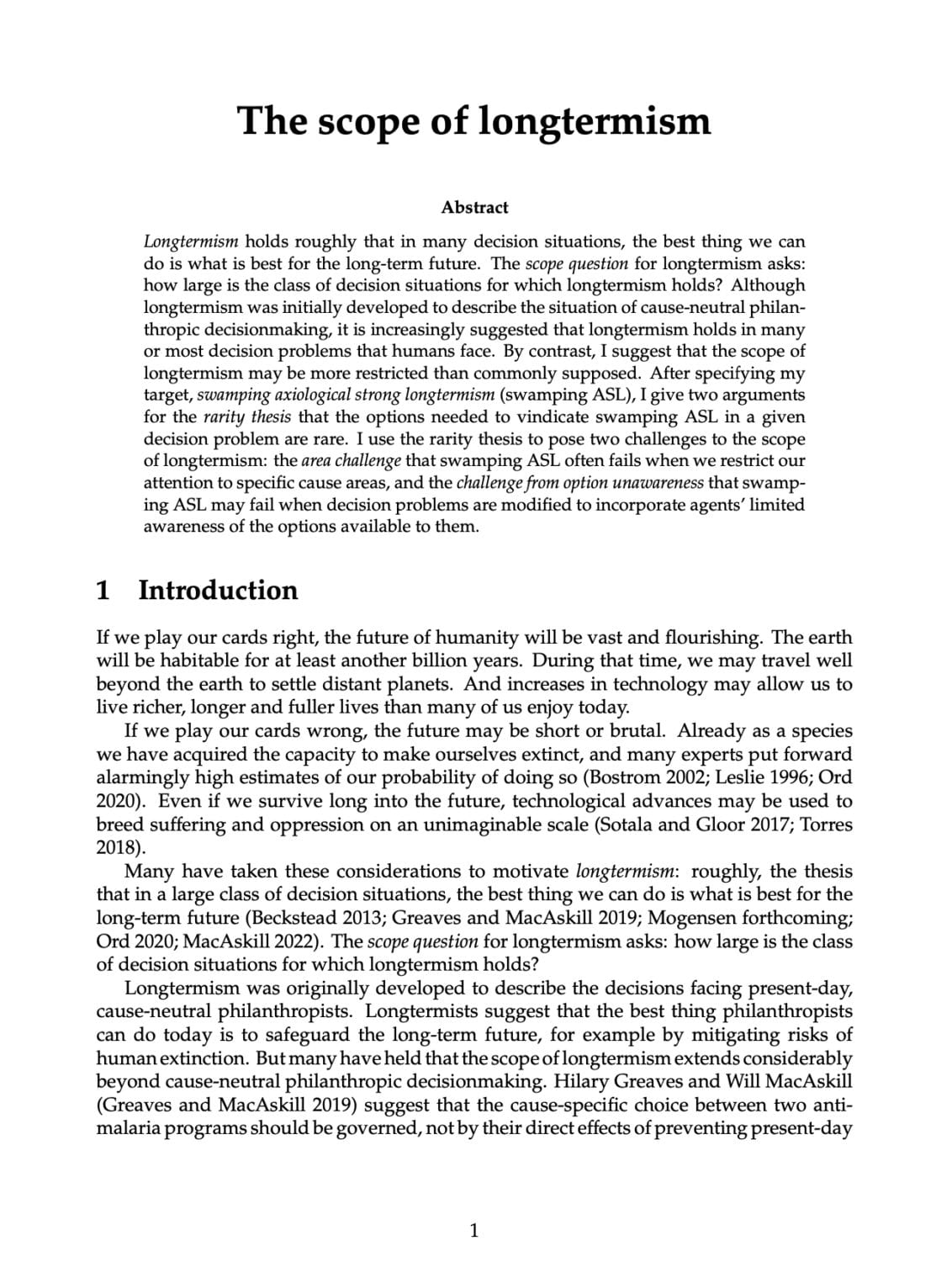The scope of longtermism
David Thorstad (Global Priorities Institute, University of Oxford)
GPI Working Paper No. 6-2021
Longtermism holds roughly that in many decision situations, the best thing we can do is what is best for the long-term future. The scope question for longtermism asks: how large is the class of decision situations for which longtermism holds? Although longtermism was initially developed to describe the situation of cause-neutral philanthropic decisionmaking, it is increasingly suggested that longtermism holds in many or most decision problems that humans face. By contrast, I suggest that the scope of longtermism may be more restricted than commonly supposed. After specifying my target, swamping axiological strong longtermism (swamping ASL), I give two arguments for the rarity thesis that the options needed to vindicate swamping ASL in a given decision problem are rare. I use the rarity thesis to pose two challenges to the scope of longtermism: the area challenge that swamping ASL often fails when we restrict our attention to specific cause areas, and the challenge from option unawareness that swamping ASL may fail when decision problems are modified to incorporate agents’ limited awareness of the options available to them.
Other working papers
Doomsday and objective chance – Teruji Thomas (Global Priorities Institute, Oxford University)
Lewis’s Principal Principle says that one should usually align one’s credences with the known chances. In this paper I develop a version of the Principal Principle that deals well with some exceptional cases related to the distinction between metaphysical and epistemic modality. I explain how this principle gives a unified account of the Sleeping Beauty problem and chance-based principles of anthropic reasoning…
Population ethics with thresholds – Walter Bossert (University of Montreal), Susumu Cato (University of Tokyo) and Kohei Kamaga (Sophia University)
We propose a new class of social quasi-orderings in a variable-population setting. In order to declare one utility distribution at least as good as another, the critical-level utilitarian value of the former must reach or surpass the value of the latter. For each possible absolute value of the difference between the population sizes of two distributions to be compared, we specify a non-negative threshold level and a threshold inequality. This inequality indicates whether the corresponding threshold level must be reached or surpassed in…
Existential Risk and Growth – Philip Trammell (Global Priorities Institute and Department of Economics, University of Oxford) and Leopold Aschenbrenner
Technologies may pose existential risks to civilization. Though accelerating technological development may increase the risk of anthropogenic existential catastrophe per period in the short run, two considerations suggest that a sector-neutral acceleration decreases the risk that such a catastrophe ever occurs. First, acceleration decreases the time spent at each technology level. Second, since a richer society is willing to sacrifice more for safety, optimal policy can yield an “existential risk Kuznets curve”; acceleration…

